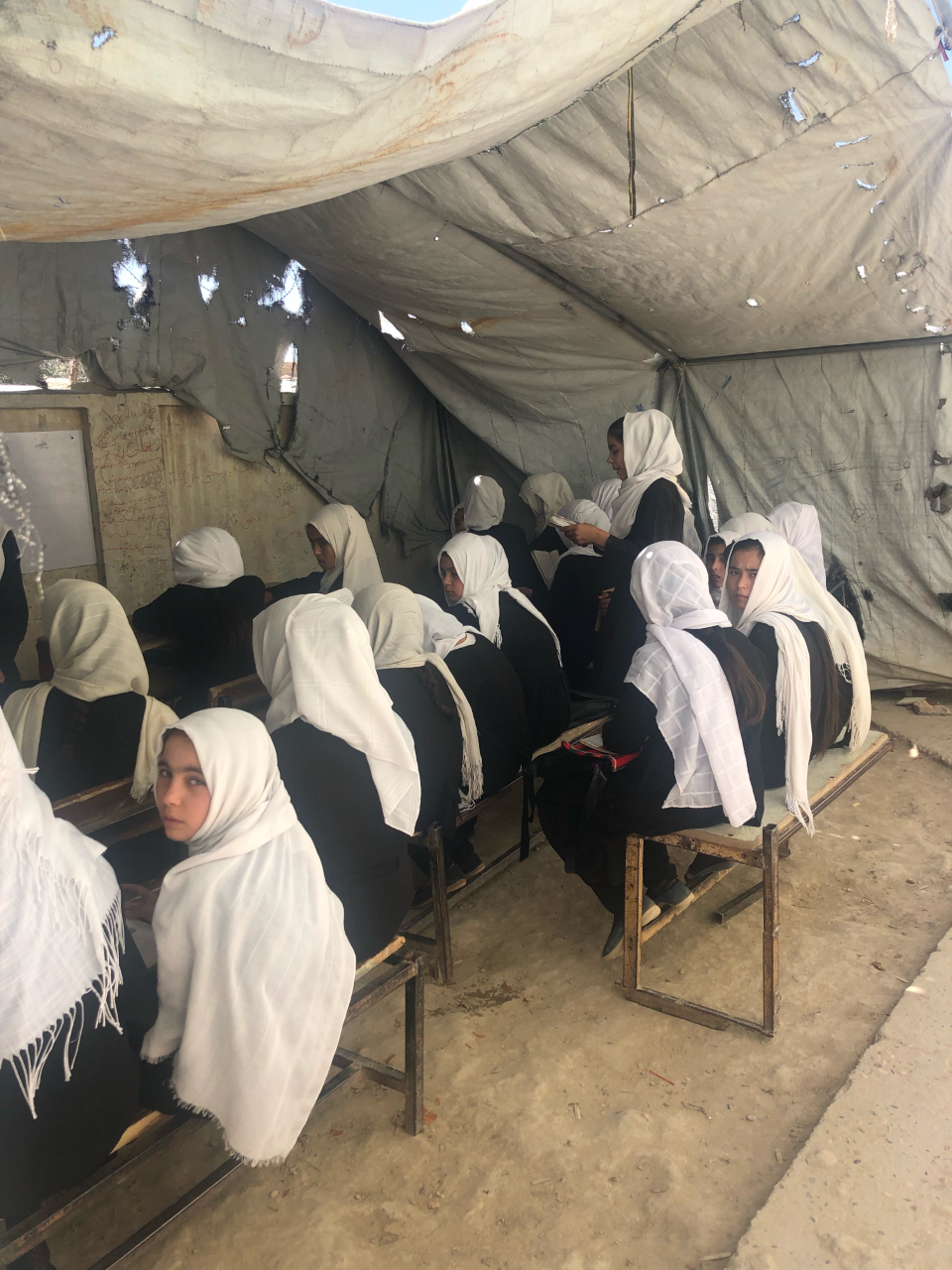Mazar-e-Sharif, 17 July 2019 – For many years the Sayed Yahia Omari primary school in the informal district of Mazar-e-Sharif, Afghanistan, has been holding classes under open air tents. Despite the challenges of conducting classes in the crowded tents, and in addition to the fluid security situation in Afghanistan, many young girl students continued to turn up to class to achieve their primary education.
A year ago, community members decided improve the situation. Thanks to an inclusive participatory decision-making process, members of this Community Development Council (CDC) voted for the construction of a five-classroom concrete structure. These classrooms now host three shifts of 600 students per day. The concrete walls shelter the young girls and their teachers from adverse weather conditions, especially in the cold winters and hot summers. With the additional safety this structure brings, more parents are allowing their daughters to attend the school.

UN-Habitat, the UN agency focal point on sustainable urbanization, in partnership with Municipalities, the Ministry of Urban Development and Land (MUDL), the Ministry of Interior Affairs (MoI) and the Deputy Ministry of Municipalities (DMM) assisted this community to institutionalize their Community Development Council (CDC). The CDC is a democratically elected sub-local governance structure where local men and women decide where to spend project funds and the district budget. The Principal of the school, Mrs. Shukria Ahmadi, expressed her gratitude to “UN-Habitat for promoting a safe and secure environment for our students.”
This project is part of the Afghanistan Urban Peacebuilding Programme (AUPP), jointly funded by the government of the Kingdom of the Netherlands, the Swiss Agency for Development and Cooperation, and the community members of this district.
Despite the great impact of the initiative, the team leader of the AUPP programme, Dr. Shir Shah, cautioned about “the remaining challenges as there are still many children who go to school in tents.”
The AUPP programme has continued its work in Mazar e Sharif and other Afghan cities addressing the safety and security challenges of vulnerable sectors of the population, especially girls and women. This programme implements a diverse range of projects in several Districts of the city, under the name of Afghanistan Urban Safety and Security Programme (AUSSP).
Article: Koussay Boulaich
Banner photo: UN-Habitat/Suhail Mayel